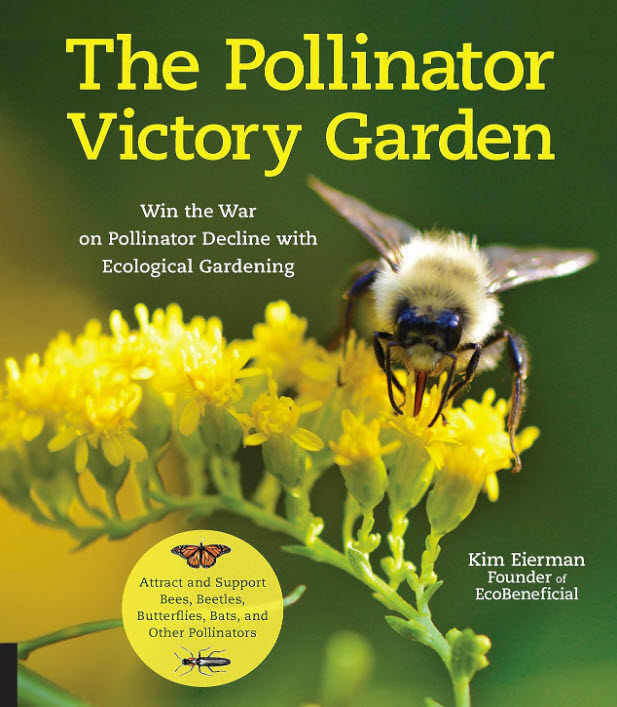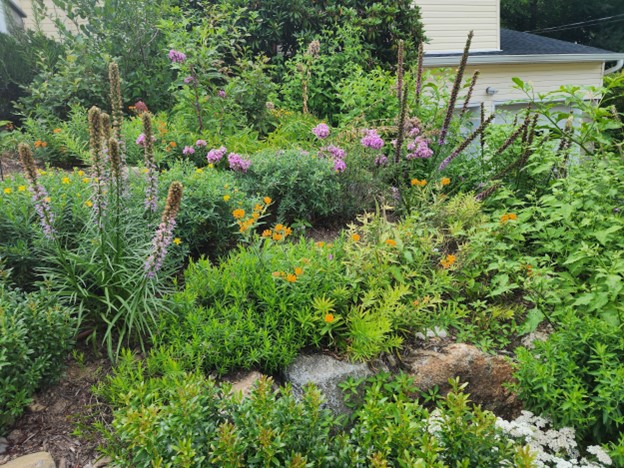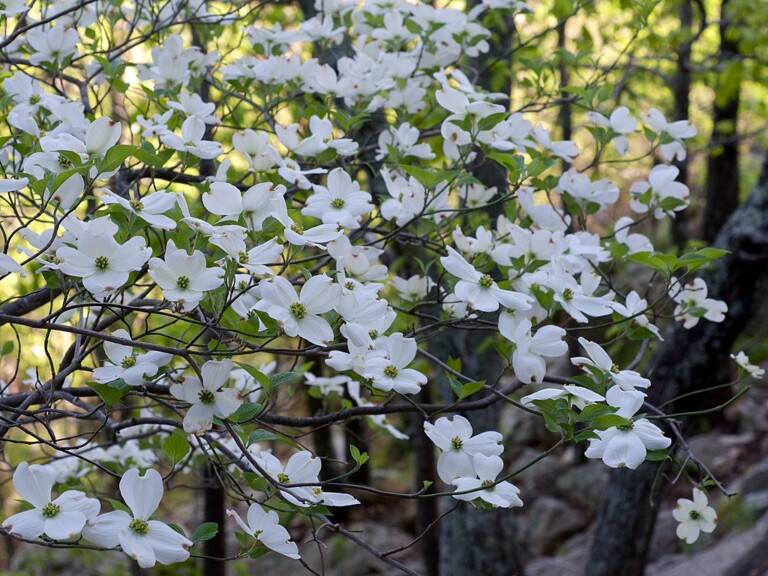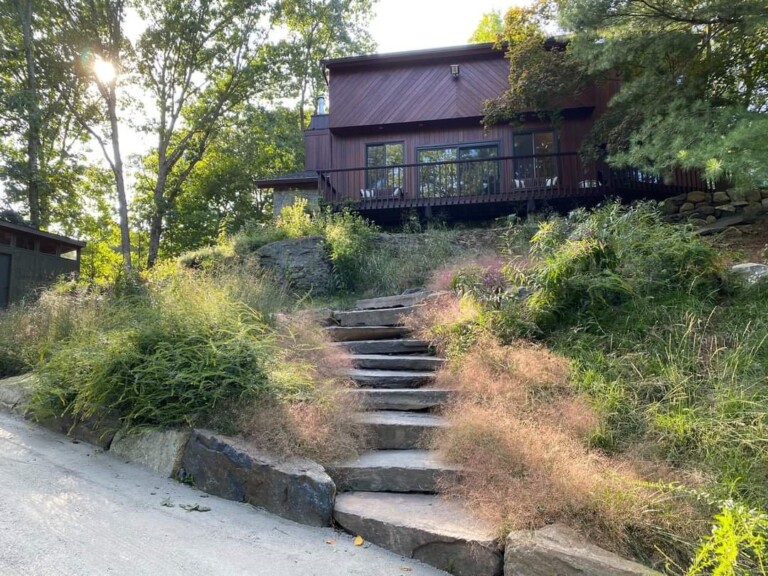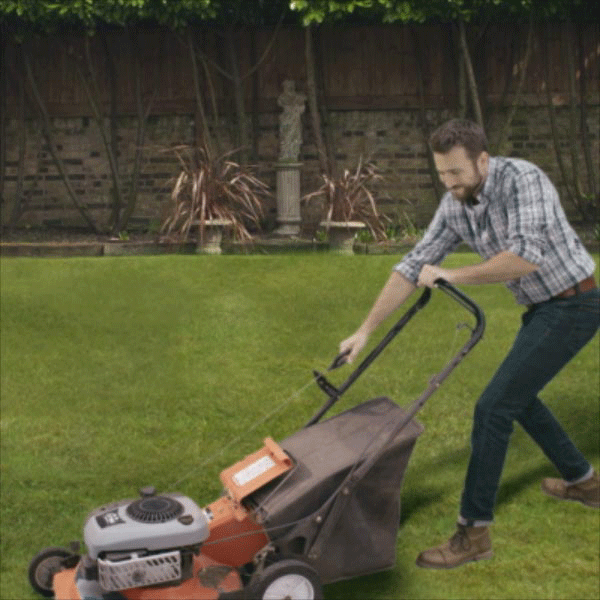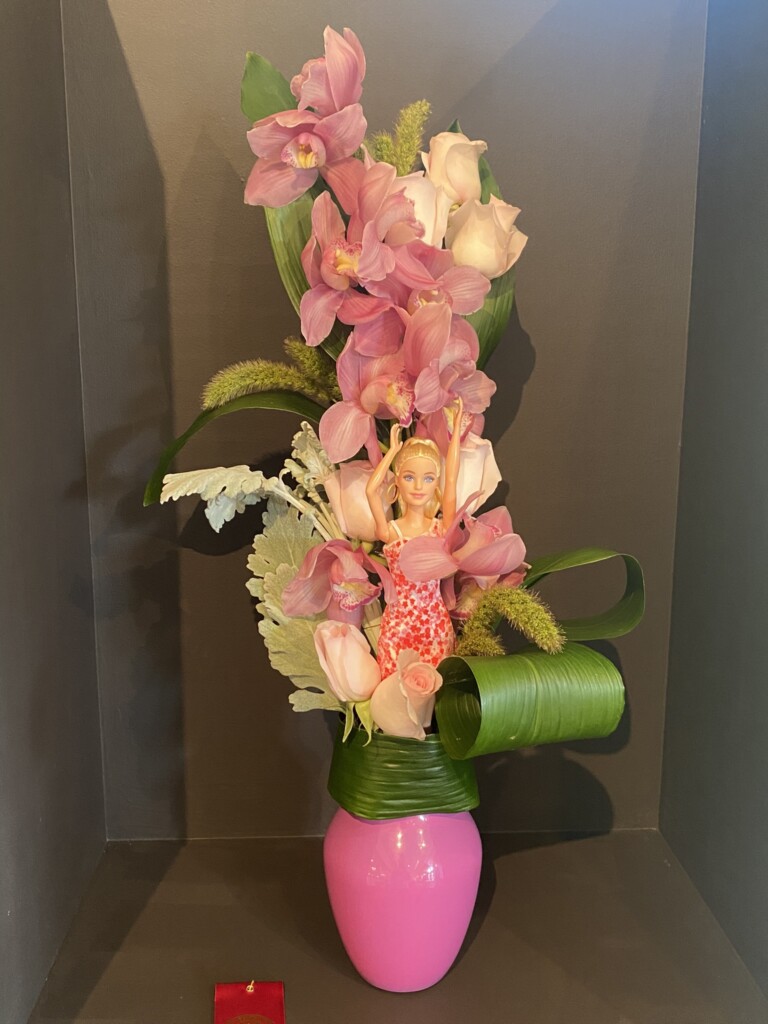Going Native: Gardening with EcoBeneficial’s Kim Eierman
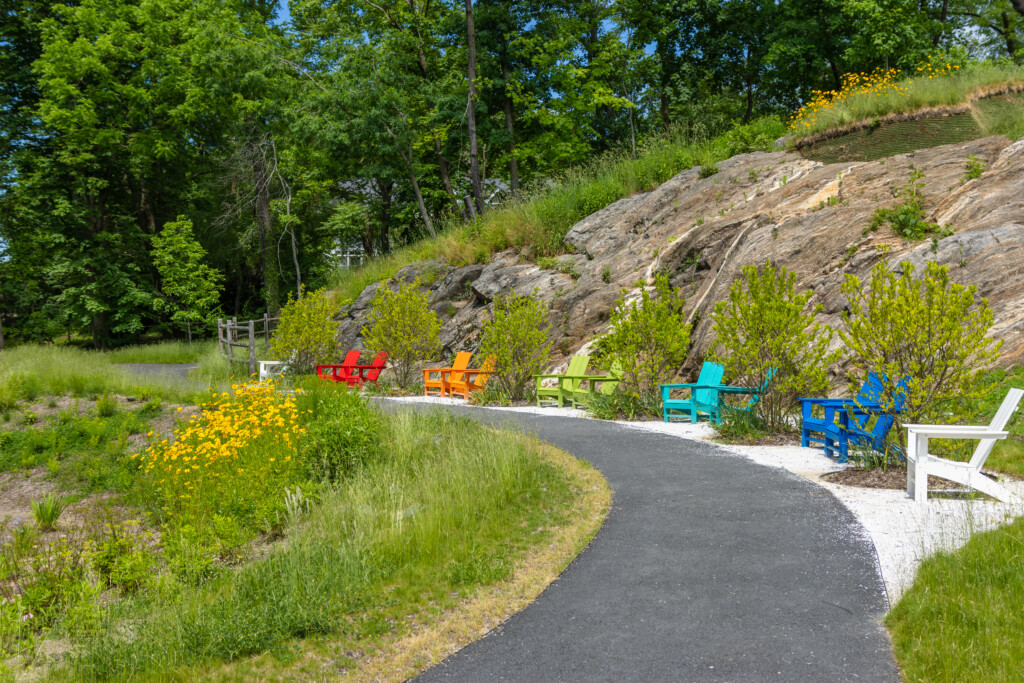
Going Native is a new garden series highlighting the contribution of native plants to building resilient landscapes. In this series, MyRye.com will introduce you to native plant experts that will tell you ways to get started with a small garden patch, a complete property or just a few garden containers.
Today, please meet Kim Eierman, founder of EcoBeneficial LLC.
Disclosure: Eierman has assisted the publisher of MyRye.com with native plant projects.
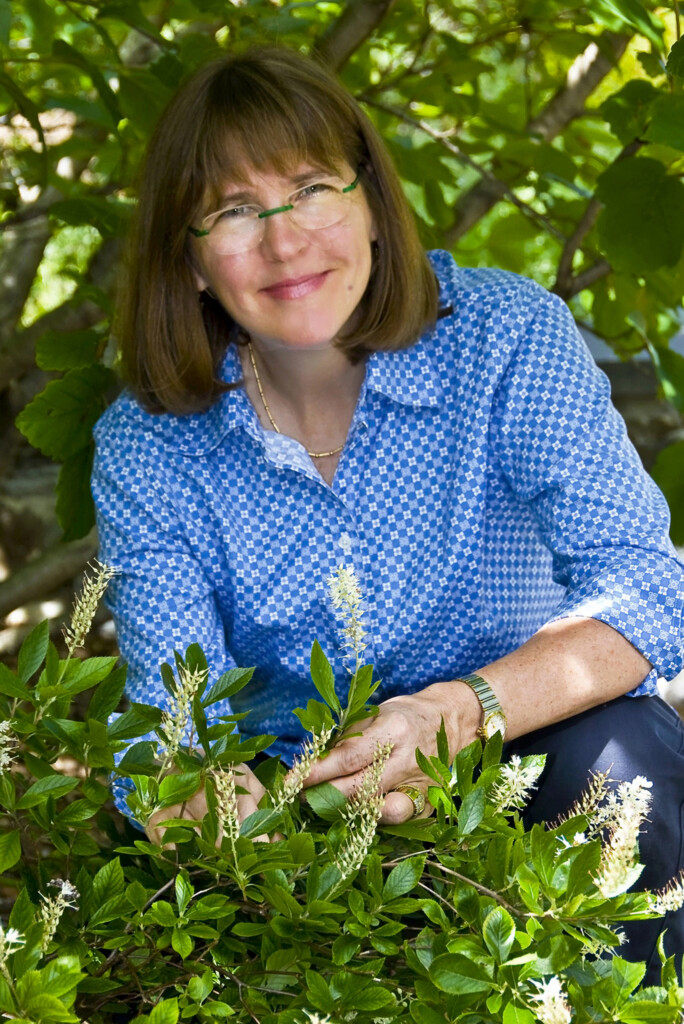
Your name: Kim Eierman
Your company and role: Founder, EcoBeneficial LLC
MyRye.com: Explain your professional training and education with respect to native plants and ecology.
Eierman: Certified Horticulturist, American Society for Horticultural Science; Accredited Organic Landcare Professional, NOFA, Instructor – Ecological Gardening and Native Plants at New York Botanical Garden, Brooklyn Botanic Garden, Massachusetts Horticultural Society, and The Native Plant Center
Why do you work primarily with native plants?
Eierman: Regional native plants have co-evolved with the plants and animals in our ecosystems and support a healthy environment.
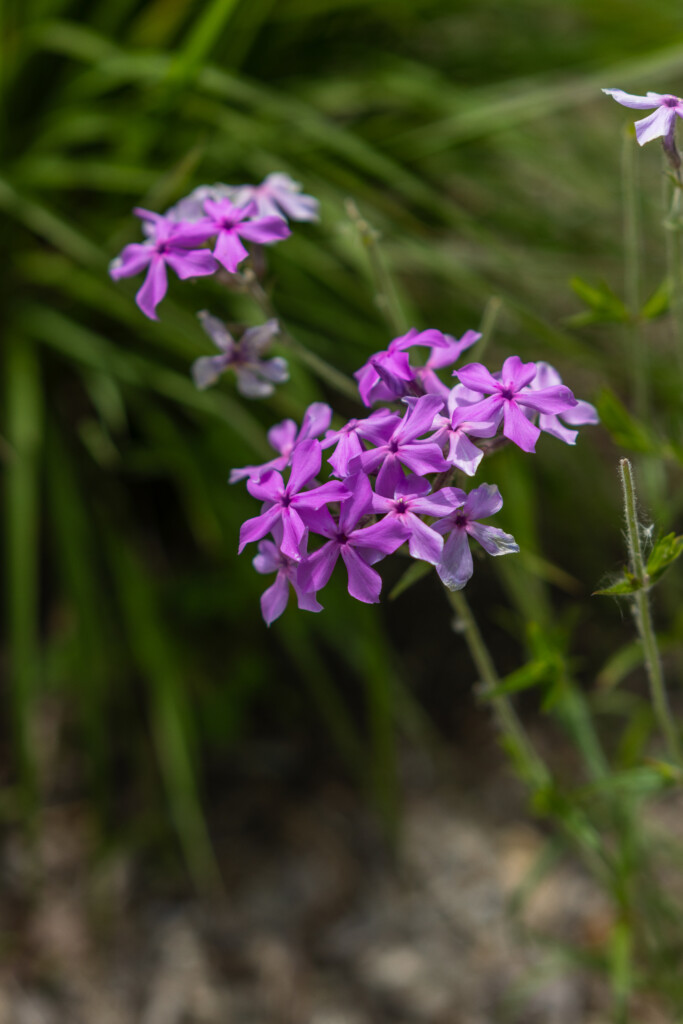
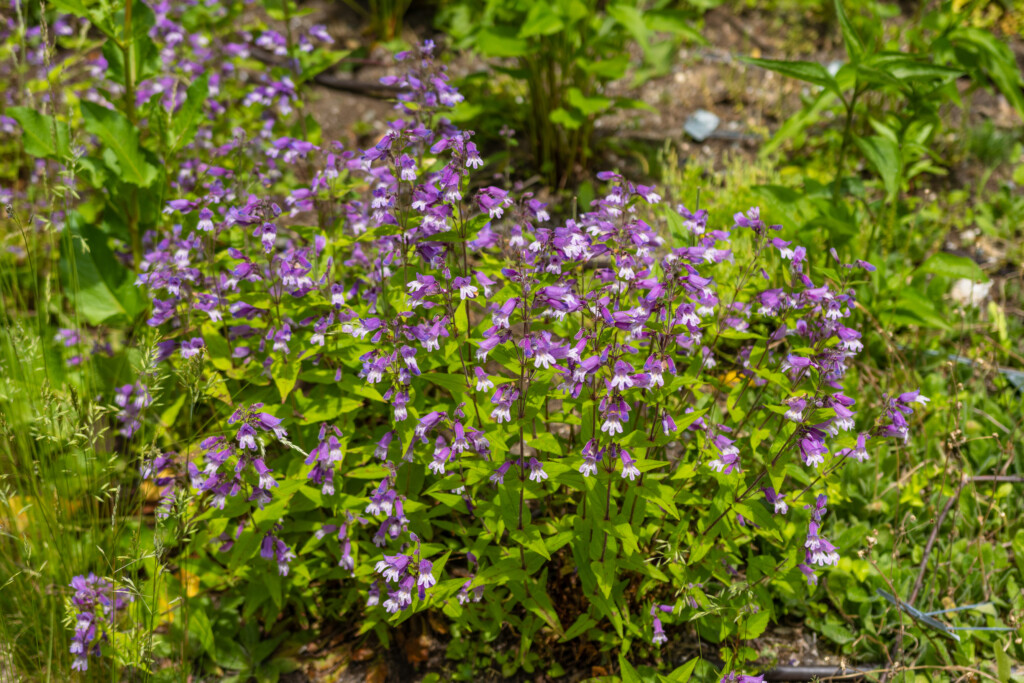
What are some of the benefits of native plants?
Eierman: Native plants have co-evolved with other species which often depend upon them. Without native plants some species disappear (Ex: Asclepias species (milkweeds and Monarchs).
Native plants are essential to food webs. Every living thing is connected in some way.
What are invasive and non-native plants?
Eierman: A native plant is one that has evolved over a long period of time in a particular region or ecosystem. Native plants occur naturally, without the assistance of humans.
A non-native plant is one that has been introduced with human help (intentionally or accidentally) to a new place or new type of habitat where it was not previously found.
What is a straight native versus a cultivar?
Eierman: A straight species native plant is one that occurs naturally, while cultivars are cultivated by humans for particular traits, such as flower or leaf color, size, habit, etc. Straight species natives have all of the ecological functions that Mother Nature intended. Cultivars may be more limited in their ecological attributes (ex: sterile cultivars have no seeds for birds), and they are typically grown as clones (no genetic diversity).
It is the fall season – what are some good action items around fall planting, yard care and thinking ahead to spring?
Eierman: Fall is a great time for planting most native plants. The warm days and cool nights allow for successful root development. Make sure to irrigate any newly-planted plants for best results, when Mother Nature isn’t providing sufficient rainfall.
Remember to leave your native flowering perennials and grasses standing through winter as habitat for many invertebrates, and a seed source for birds and other creatures.
Leave leaves in place (except on The Green Desert (your lawn). Leaf litter is nature’s mulch and compost and helps to improve soil texture and organic matter.
Explain four or five of the most common invasive plants in the Rye landscape, and some good native substitutes?
Eierman:
| Common Invasive | Native Substitute(s) |
| Ailanthus altissima (tree of heaven) | Juglans nigra
(black walnut) |
| Acer plantanoides (norway maple) | Acer rubrum (red maple) |
| Pyrus calleryana
(callery pear) |
Amelanchier arborea (downy serviceberry)
|
| Euonymus alatus (burning bush) | Vaccinium corymbosum (highbush blueberry) |
Privacy screening with plants is important to many homeowners in Rye – what are good native species to consider for screening projects?
Eierman: Since biodiversity is essential to healthy ecosystems, I never use a monoculture hedge planting, even with native species. And, consider planting not just evergreens, but also deciduous natives such as Cornus racemosa (gray dogwood), Viburnum dentatum (arrowwood viburnum), Cornus sericea (redosier dogwood) and many others. Assess your site and research the species to ensure that you use the right plants in the right place.
What are good resources for people to learn more about natives?
Eierman:
| Resource Name | Detail |
| The Native Plant Center | I teach there – link |
| LadyBird Johnson Wildflower Center Plant Database | link |
| New York Flora Atlas | link |
| New York Botanical Garden | I teach there – link for gardening classes |
What are three good local nurseries that specialize and / or have expertise in native plants?
Eierman: It’s hit or miss with local nurseries and native plants in Westchester. I suggest seeking out seasonal plant sales like The Native Plant Sale at Westchester Community College on the last Saturday in April, and Rosedale Nursery’s Native Plant Weekend in partnership with The Native Plant Center, the weekend after Labor Day. Hilltop Hanover is a good source for finding local ecotype natives grown from seed.
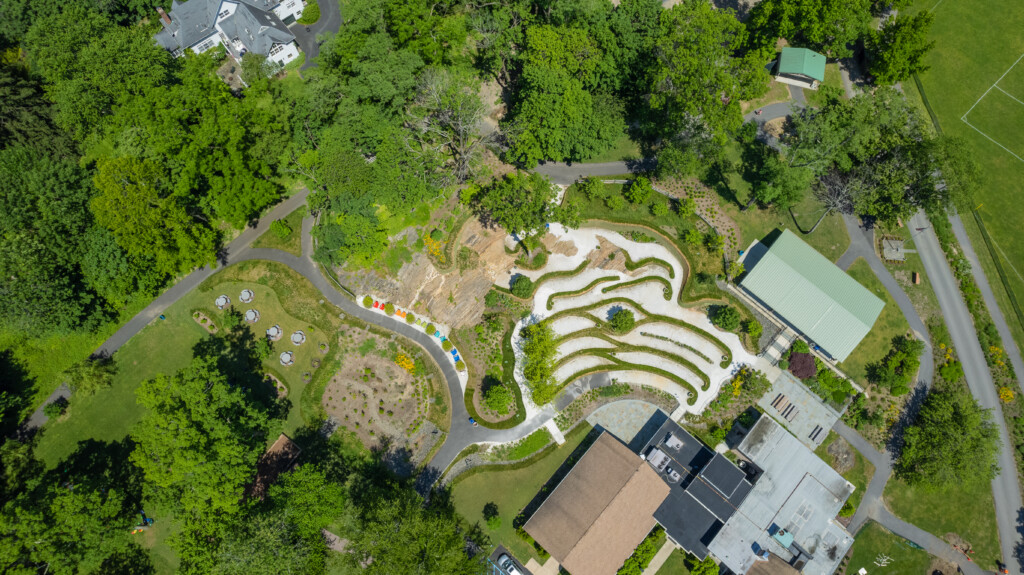
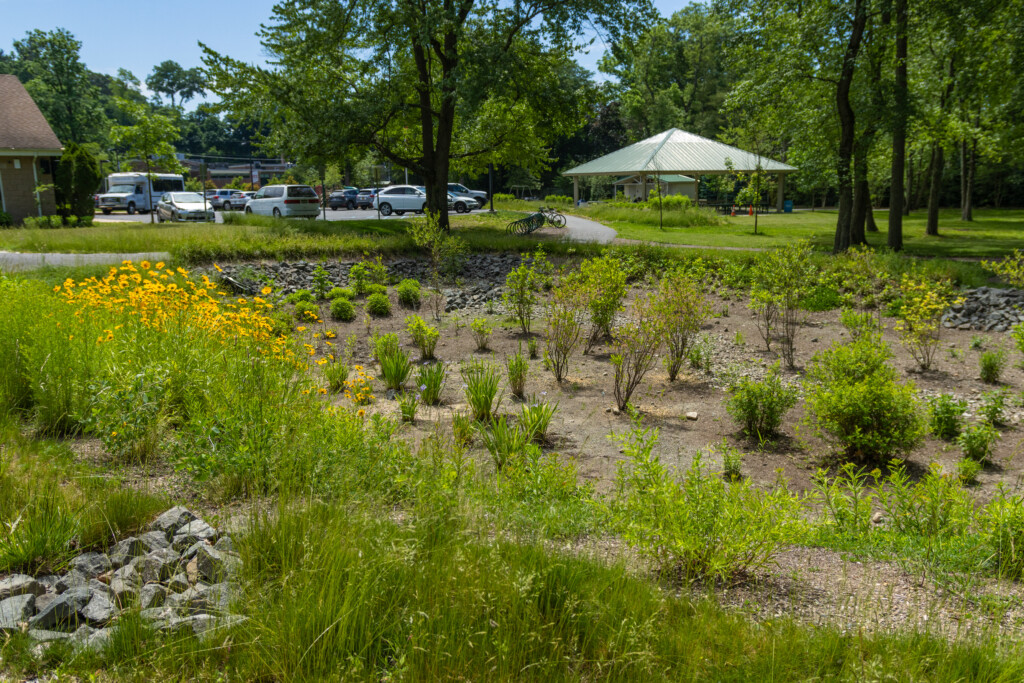
Tell us about some of your native plant projects in Rye or elsewhere in Westchester County.
Eierman:
For the past few years, I have been designing and overseeing installation of native plant beds for The City of Rye at the Parks and Rec Center at 281 Midland Avenue.
Tell us about your services:
How would your friends and family describe you in one word?
Eierman: Busy!
Summarize your career in five sentences or less.
Eierman: I chose this career to improve the environment around us, using native plants and ecological landscape design principles.
Do you work on residential, government and/or commercial projects?
Eierman: All of the above
How many years have you worked with native plants?
Eierman: 25
Which of the following services do you provide:
Eierman:
| Service | Yes or No |
| Ecological assessment | Yes |
| Design with native plants | Yes |
| Installation of native plants | Yes (with selected contractors) |
| Invasive species management | Yes (with selected contractors) |
| Organic lawn service, including electric equipment | No |
| Organic shrub and tree care | No |
Tell us about you:
Where do you live?
Eierman: Bronxville, NY
What do you do with your free time?
Eierman: Tend my own garden!
Thanks Kim!
Learn more:
Eierman’s bio:
Kim Eierman is the Founder of EcoBeneficial LLC. She is an ecological landscape designer and environmental horticulturist specializing in native plants. Based in New York, Kim teaches at the New York Botanical Garden, Brooklyn Botanic Garden, The Native Plant Center and Massachusetts Horticultural Society.
Kim is an active speaker nationwide on many ecological landscape topics. She is the author of the book, The Pollinator Victory Garden: Win the War on Pollinator Decline with Ecological Gardening.
In addition to being a Certified Horticulturist through the American Society for Horticultural Science, Kim is an Accredited Organic Landcare Professional, a Steering Committee member of The Native Plant Center, and a member of The Ecological Landscape Alliance and Garden Communicators International.
